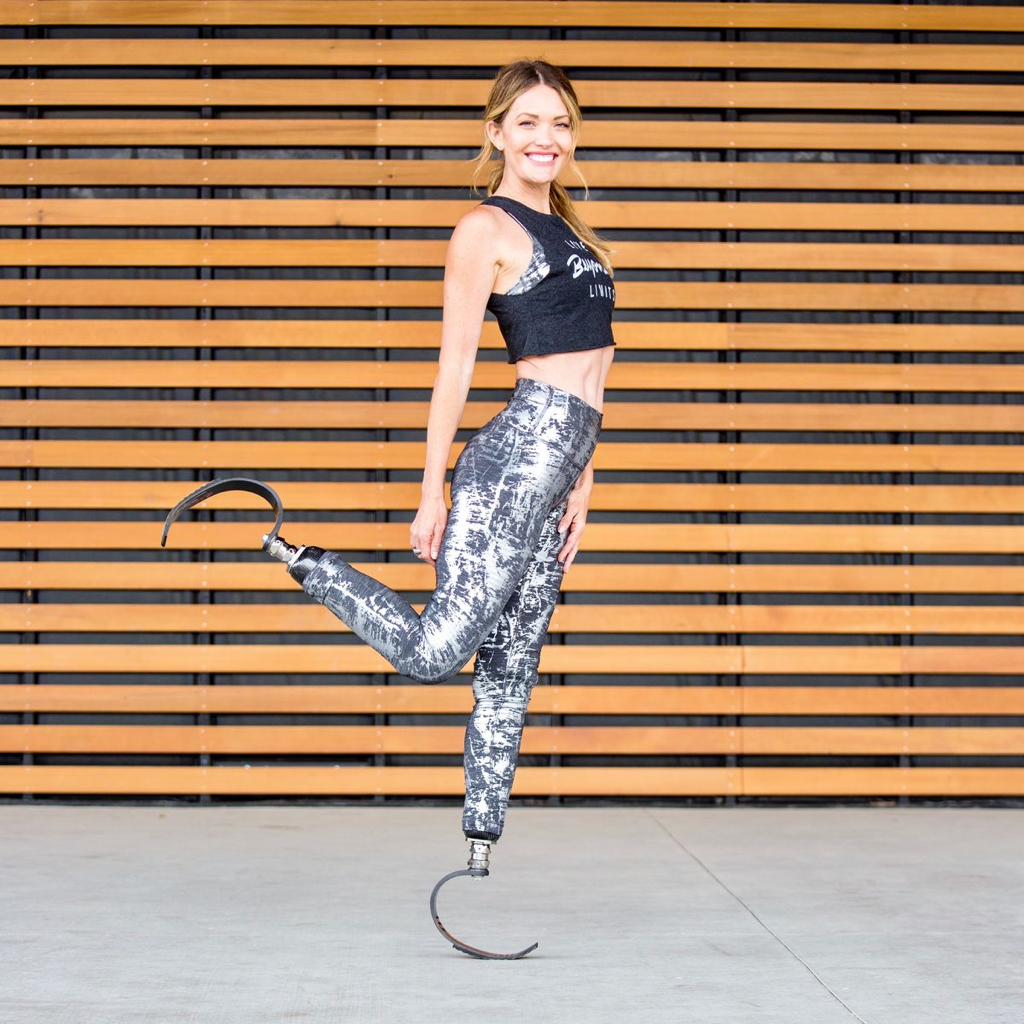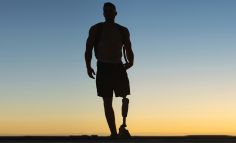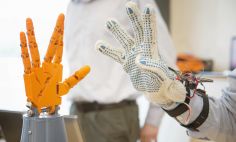Health Topics

Paralympic snowboarder Amy Purdy isn’t slowing down
The athlete and author discusses life with prosthetics and overcoming challenges
About 24 years ago, Amy Purdy lost her legs, spleen, and hearing in one ear from a deadly blood infection. Since then, she has won three Paralympic medals for snowboarding, advanced to the final round on Dancing with the Stars, and wrote the bestselling book On My Own Two Feet: From Losing My Legs to Learning the Dance of Life. She spoke with NIH MedlinePlus Magazine about her life’s journey, using prosthetics, and her advice to others.
What happened that led to your needing prosthetics?
At the age of 19, I lost both of my legs to septic shock when I contracted a rare and deadly blood infection called bacterial meningitis. My body went into septic shock after just 24 hours of feeling like I had the flu, and I fought for my life in the hospital for two and a half months. I ended up losing my spleen, kidney function, hearing in my left ear, and both legs below the knees.
Was it difficult getting used to your prosthetics?
It will always take adjusting because your body changes, and so do your legs. It’s not like you get your [prosthetic] legs fitted once and that’s it, then, for the rest of your life. With prosthetics, you forever go through changes and making and adjusting legs. It’s part of the process. However, mentally I adjusted right away to my new reality.
Do you use different prosthetics for different activities?
Yes. Different prosthetics work in different ways. When you run, you need prosthetics that are made of carbon fiber and can spring you forward. For snowboarding, there’s an entirely different ankle motion needed, so you need a whole different type of foot to balance and bend at the ankle. And when you swim with prosthetics, there is an entirely different motion needed. Almost every activity—including walking—requires a different foot.
How have your prosthetics changed since you began using them?
There have been some improvements over the last 20 years with how they fit the legs and what materials they use. I personally haven’t seen a huge jump in technology for below-the-knee amputees [like me]. However, for above-the-knee and arm amputees, there are now very high-tech computerized limbs that have dramatically improved people’s quality of movement and life.
You recently had to recover from several operations. How are you doing now?
In 2019, I severely injured my left leg, creating a massive blood clot. I almost lost my leg above my knee. It’s been a massive journey over the last four years. I’ve endured 10 surgeries, including two new leg amputations, all to fight to save my leg. I am grateful to be doing well now. My body miraculously created an entirely new pathway for blood, and I’m now in the process of getting my prosthetic leg to fit properly. It’s been a journey but another reminder for me of how incredible and adaptable the human body is.
What is your message to everyone about facing physical and mental challenges in life?
When we compare ourselves to others or even to our old selves, it’s the most self-sabotaging thing we can do. No matter what circumstances you’re facing, you must remember to stay present. Take things day by day, one baby step at a time. Find things in your life to be grateful for and know that every day brings new light and opportunity.

When not on the slopes, Amy Purdy works as a motivational speaker, podcaster, and writer.
How has gratitude been important to your success?
Gratitude is the key to happiness and success. You could have everything in the world, but if you don’t have gratitude, you feel empty. You may have only a few things in your life, but if you are grateful for them, you live abundantly. Every morning, instead of thinking of all the negative things happening in your life, focus on all the positive things. This could be as simple as being grateful for your health or for your loved ones. That’s a great daily practice because when you feel that gratitude in your heart from the moment you wake up, it influences your entire day.
Do you have specific advice for others who use or will use prosthetics?
Like everything else in life, it’s a journey. Don’t get discouraged. Just continue to take one baby step at a time, and eventually you will get where you are meant to be. Keep going.
What does the future hold for you?
I am truly grateful for having accomplished so much in my life and living my dreams over and over again: winning three Paralympic medals, motivational speaking across the world, a New York Times bestselling book, and a wonderful life and marriage.
The next thing for me is to continue to help others do the same. I’m at the beginning of writing my second book, and I have plans to help people find their voice and use their own stories to impact the world.







